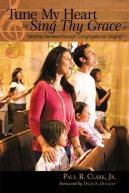 In David Kinnaman’s book, You Lost Me: Why Young Christians are Leaving the Church …and Rethinking Faith, there is a recurring theme in the responses voiced by the wandering young adults interviewed in relation to what happened in their drift away from the church. One oft repeated sentiment indicates feelings that the church could not handle their doubts. In fact, a full 50% of the 18-29 year olds interviewed in this study indicated the following statement was “completely or mostly true of me.” The statement:
In David Kinnaman’s book, You Lost Me: Why Young Christians are Leaving the Church …and Rethinking Faith, there is a recurring theme in the responses voiced by the wandering young adults interviewed in relation to what happened in their drift away from the church. One oft repeated sentiment indicates feelings that the church could not handle their doubts. In fact, a full 50% of the 18-29 year olds interviewed in this study indicated the following statement was “completely or mostly true of me.” The statement:
I don’t feel that I can ask my most pressing life questions in church.
That statement disturbs me. My disturbance is not aimed at those young adults who have doubts, or who feel church is not a place to ask pressing life questions. To the contrary, my disturbance is concern over what we leaders may have allowed church to become when sojourners feel such disconnection during challenging aspects of their journey. Could it be we have been preoccupied with trying to have all the answers, when a critical aspect of what was needed was a more sincere embrace of the questions? Theologian, Philosopher, and Pulitzer prize winning novelist, Frederick Buechner says, “Doubt is the ants in the pants of faith.”[1] Perhaps leaders could better enjoin the faith community in the shared journey. What’s more, as worship planners, facilitators, and thinkers, I cannot help but wonder seriously about the ethos of our worship, and wonder if we may unintentionally encourage dishonest worship by services that are filled with a music of self-focus, prayers dominated by self-interests, and sermons with an undertone of self-promotion.
A great revelation of worship study for me has been worship’s capacity to embrace wide tensions. The mystery of God’s otherness which stirs in us a sense of awe lives right alongside His intimate nature that makes Him, to us, closer than a brother. While undoubtedly our worship must unveil the means of personal relationship with Christ, and encourage full personal participation in the worship event, we must never ignore our responsibility above all to lift up the Christ as the One worshiped and adored, and include aspects of character that point to our Triune God in a manner that we may grasp again that His ways are not our ways, and His thoughts are not our thoughts. Likewise, it seems crucial that we sing, pray, and hear about His deeds; past, present, and future. It seems to me that emotional intimacy should not be confused as a substitute for obedient surrender. I am fearful that rooting Christian worship in the former sets us all up to encounter a more fundamental doubt when the proverbial thrill is gone. We can anticipate such when tragedy strikes, when fellow believers fail us, and when we simply have no answers to life’s pressing questions, just as our young friends leaving the church have experienced.
May our worship singing provide opportunity for sincere expression. Indeed, we are “Prone to wonder, Lord, I feel it. Prone to leave the God I love.” Thankfully, there are yet other young believers who are finding ways of giving voice to the times of unbelief. No need to hide, but rather, let us reach out like the father of the young boy possessed by an unclean spirit in Mark 9, and proclaim, “I believe, help my unbelief.”
From the recording: Help My Unbelief Words adapted from John Newton Music by Clint WellsI know the Lord is nigh,
And would but cannot pray,
For Satan meets me when I try,
And frights my soul away,
And frights my soul away.
I would but can’t repent,
Though I endeavor oft;
This stony heart can never relent
Till Jesus makes it soft,
Till Jesus makes it soft.
Help my unbelief.
Help my unbelief.
Help my unbelief.
My help must come from Thee.
I would but cannot love,
Though wooed by love divine;
No arguments have power to move
A soul as base as mine.
A soul so base as mine.
I would but cannot rest,
In God’s most holy will;
I know what He appoints is best,
And murmur at it still.
I murmur at it still.
Help my unbelief.
Help my unbelief.
Help my unbelief.
My help must come from Thee.
[1] Quoted by David Kinnaman in You Lost Me, pg. 161.



